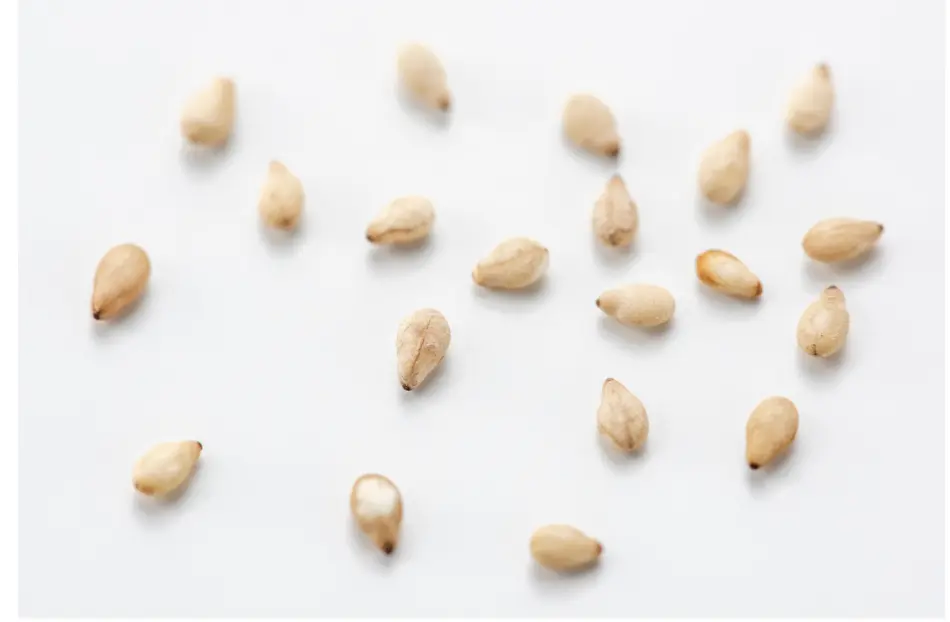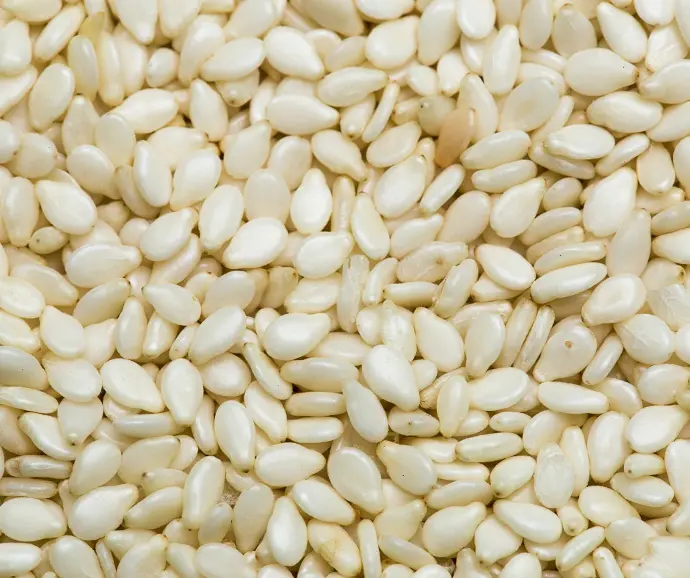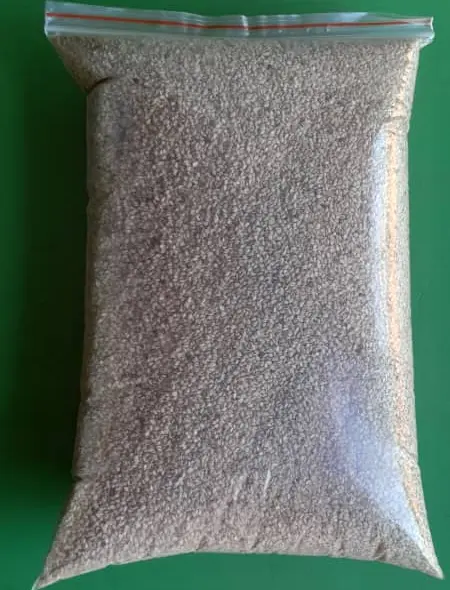SESAMUN INDICUM
Sesame is a versatile oilseed that is used in a wide variety of food applications in Europe.
Sesame seeds are the seeds of the sesame plant (Sesamum indicum L.).
They are well known As most nutritious seeds because it contains high value of protein and amino acid.
Sesame Seed Is drought tolerant crop. Sesame Seed have rich nutty flavor. Sesame seeds contains three times more calcium than half a cup of whole milk?
In addition to being an excellent dietary source of calcium, sesame seeds are also a good source of manganese, copper, magnesium, iron, phosphorus, vitamin B1 (thiamin), zinc, vitamin E, healthy protein, and fiber.
These specifications outline the expected characteristics of variegated sesame seeds, including their oil content, maximum blend proportion, minimum purity, maximum foreign material, and maximum presence of other seeds of color in the blend.
They are packaged in 50 kg bags.
Sesame seeds variegated: Bigare, White, Black.
Oil content: 48-50%
Maximum blend: 1.3%
Minimum purity: 99%
Foreign material: Maximum 1%
Other seeds of color: Maximum 2%
Packaging: 50 kg
Available:
Sesame 50000MT
Organic Sesame: 30000MT
Cultivation: Plant sesame seeds in the field. Implement proper irrigation and fertilization practices. Monitor and manage pests and diseases. Harvesting: Determine the optimal time for harvesting. Use appropriate labor for harvesting. Collect sesame pods. Processing at Farm: Remove sesame seeds from the pods. Clean and sort the seeds to remove impurities. Dry the seeds to an optimal moisture level. Transportation to Processing Facility: Pack processed sesame seeds in suitable containers. Transport seeds from the farm to the processing facility. Processing and Packaging: Clean and sort sesame seeds again to ensure quality. Package the sesame seeds in various quantities and formats. Label packages with necessary information. Name of the product Batch number / Year of crop Quality Control: Conduct quality checks on processed sesame seeds. Ensure compliance with international standards and regulations. Storage: Store the packaged sesame seeds in a controlled environment to maintain quality. Export Documentation: Prepare necessary export documentation, including invoices, certificates of origin, and phytosanitary certificates. Ensure compliance with import regulations of the destination country. Logistics and Shipping: Arrange transportation from the processing facility to the port of export. Work with shipping companies to transport sesame seeds to the destination country. Customs Clearance: Complete customs procedures at the export and import locations. Ensure all required documents are presented and approved.
Website may use cookies to personalize and facilitate maximum navigation of the User by this site. The User may configure his / her browser to notify and reject the installation of the cookies sent by us.
I request for a products Specialist to contanct me
Join us to great a greater and fine product





